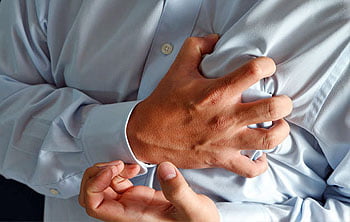May is American Stroke Awareness and Lupus Awareness Month

By Kathey Avery, RN
In our community stroke and lupus statistics are disproportionately high.
Two to three times more women of color develop lupus than any other group.
What is Lupus?
The immune system is designed to attack foreign substances in the body. If you have lupus, something goes wrong with your immune system and it attacks healthy cells and tissues. This can damage many parts of the body, such as the joints, skin, kidneys, heart, lungs, blood vessels, and brain.
There are many kinds of lupus. The most common type, systemic lupus erythematosus, affects many parts of the body.
Other types of lupus are:
• Discoid lupus erythematosus—causes a skin rash that doesn’t go away
• Subacute cutaneous lupus erythematosus—causes skin sores on parts of the body exposed to sun
• Drug-induced lupus—can be caused by medications
• Neonatal lupus—a rare type of lupus that affects newborns
What Are the Symptoms of Lupus? Symptoms of lupus vary, but some of the most common symptoms of lupus are:
• Pain or swelling in joints
• Muscle pain
• Fever with no known cause
• Red rashes, most often on the face
• Chest pain when taking a deep breath
• Hair loss
• Pale or purple fingers or toes
• Sensitivity to the sun
• Swelling in legs or around eyes
• Mouth ulcers
• Swollen glands
• Feeling very tired
About Strokes (brain attack)
A stroke is caused when a blood vessel in the brain burst or is blocked by a blood clot. Parts of the brain begin to die. African American adults have the highest rate of hypertension in the world greater that 43%.
Warning signs may include:
• Sudden numbness or weakness of the face, arm, or leg, especially on one side of the body
• Sudden confusion trouble speaking or understanding speech
• Sudden trouble seeing in one or both eyes
• Sudden trouble walking, dizziness loss of balance or coordination
• Sudden severe headache with no known cause
“Mini stroke” is like a stroke, but symptoms clear quickly, but should be treated as an emergency (like the warning signs of a stroke).
Women may also have sudden: hiccups, nausea, general weakness or tiredness, or racing heart. These may be in addition to, or instead of, the classic symptoms.








